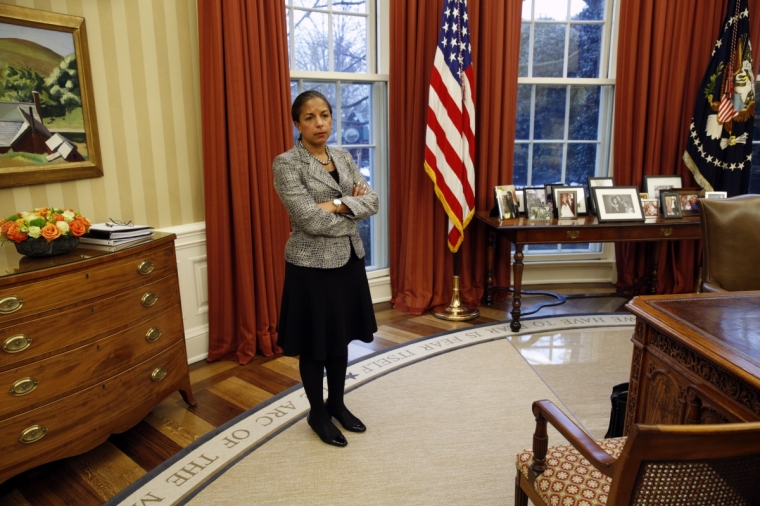White House officials admit Iran may use cash from nuclear weapons deal to fund terrorism

WASHINGTON (Christian Examiner) -- President Obama's National Security Advisor Susan Rice recently admitted to CNN's Wolf Blitzer that more than 100 billion in frozen Iranian assets scheduled to be released as part of a controversial nuclear weapons agreement with Iran could be used to support terrorist activities.
"We think for the most part they're going to need to spend it on the Iranian people and their economy which is tanked," Rice stated. She claimed Iranian president Hassan Rouhani was elected by Iranians who want economic relief.
When Blitzer pressed the issue of Iran's freedom to use the assets in any way the nation chooses, Rice admitted there would be nothing preventing them from funding "bad behavior."
"It is real, it is possible, in fact we should expect some portion of that money would go to the Iranian military and could potentially be used for the kinds of bad behavior that we have seen in the region up until now," Rice said.
"But the goal here, Wolf, was never and was not designed to prevent them from engaging from bad behavior in the region. They're doing that today. The goal is to ensure that they don't have a nuclear weapon, and therefore, when they are engaging in that bad behavior that much more dangerous" [sic].
Rice contended Iran would not be able to provide weapons for terrorists since the nation will still be under an arms embargo under the agreement.
Blitzer asked, "What if they're not sending weapons? What if they're just sending money?"
Rice replied, "Well, they may be able to send money. Yes. By the way, Wolfe, just to be clear, they're sending money now while they're under sanctions. There's nothing that's currently preventing them from sending money.
When Blitzer sated the release of frozen assets will provide much more money for potential funding of terrorist activity, Rice replied, "They will have more money once they have verifiably given up their nuclear weapons capacity and any ability to reconstitute."
White House Press Secretary Josh Earnest made similar comments in a White House press briefing.
"I think, most importantly, it's the hope of the Iranian people that that influx of resources will be devoted to meeting the needs of the population there and strengthening the economy that has taken a terrible toll on the daily lives of millions of Iranians," Earnest told reporters.
"But the fact is . . . even while these sanctions have been in place, we've not seen Iran significant [sic] scale back their support for terrorism or their destabilizing activities in the region," he continued.
After arguing Iranian leaders faced pressure from their own citizens who are frustrated about the nation's economy, he stated, "I wouldn't be in a position to predict exactly what the Iranian reaction will be, and I'm certainly not going to be in a position to mandate what kinds of economic decisions that they'll make.
"But I do think that a common-sense look at what kind of pressure they're reacting to indicates that their priority will be to use those resources to address the persistent economic problems in their country . . . But I'm not going to make any predictions about what they're going to do, and I certainly am not going to be in a position to prescribe what they should do. This is a sovereign country that will make their own decisions," Earnest stated.
In addition to potential use of unfrozen assets for terrorist activities, critics of the agreement say it provides no long-term guarantee against Iran obtaining a nuclear weapon and no conditions for release Pastor Saeed Abdini and other American prisoners still being held in Iranian prisons.
The United States Congress is currently reviewing the agreement. President Obama has promised to veto congressional action that would interfere with the agreement.
RELATED ARTICLES:
Pastor Saeed Abedini still in chains for Gospel, not part of Iran nuclear deal
Obama praises, Netanyahu laments nuclear deal with Iran
Israel rejects nuclear deal with Iran as non-binding on the Jewish state